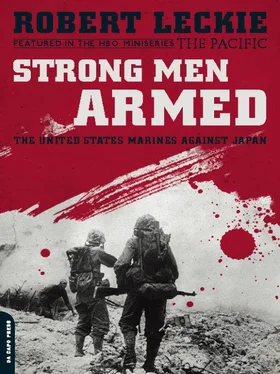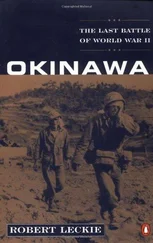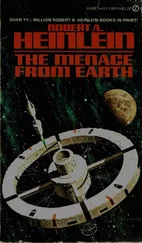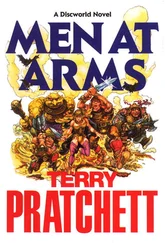Robert Leckie - Strong Men Armed
Здесь есть возможность читать онлайн «Robert Leckie - Strong Men Armed» весь текст электронной книги совершенно бесплатно (целиком полную версию без сокращений). В некоторых случаях можно слушать аудио, скачать через торрент в формате fb2 и присутствует краткое содержание. Город: Cambridge, Год выпуска: 2010, ISBN: 2010, Издательство: Da Capo Press, Жанр: nonf_military, на английском языке. Описание произведения, (предисловие) а так же отзывы посетителей доступны на портале библиотеки ЛибКат.
- Название:Strong Men Armed
- Автор:
- Издательство:Da Capo Press
- Жанр:
- Год:2010
- Город:Cambridge
- ISBN:978-0-786-74832-7
- Рейтинг книги:3 / 5. Голосов: 1
-
Избранное:Добавить в избранное
- Отзывы:
-
Ваша оценка:
- 60
- 1
- 2
- 3
- 4
- 5
Strong Men Armed: краткое содержание, описание и аннотация
Предлагаем к чтению аннотацию, описание, краткое содержание или предисловие (зависит от того, что написал сам автор книги «Strong Men Armed»). Если вы не нашли необходимую информацию о книге — напишите в комментариях, мы постараемся отыскать её.
Strong Men Armed — читать онлайн бесплатно полную книгу (весь текст) целиком
Ниже представлен текст книги, разбитый по страницам. Система сохранения места последней прочитанной страницы, позволяет с удобством читать онлайн бесплатно книгу «Strong Men Armed», без необходимости каждый раз заново искать на чём Вы остановились. Поставьте закладку, и сможете в любой момент перейти на страницу, на которой закончили чтение.
Интервал:
Закладка:
Operations to seize Japanese-held bases, such as Rabaul, Wake Island, and Tulagi, are advocated by the military writer of the New York Herald-Tribune, Major Eliot. One of the signs which suggest that the United Nations may be getting ready to capitalize on the naval advantage gained on the Coral Sea and Midway battles is the recent American bombing of Wake Island, he says. The other signs include the intensified raids on the Timor and New Guinea areas.
“Bombing alone is not enough, because at best it can only prevent the enemy from using the bases,” he continues. “What is needed is to drive the Japanese out of their positions and convert them to our own use. The only way to take positions such as Rabaul, Wake Island, and Tulagi, is to land troops to take physical possession of them.”
The New York Times suggests that Wake Island may be retaken “not only to avenge the Marines who died defending it but also because if we could take hold of the island our lines would be advanced more than 1,000 miles.”
The newspaper adds: “It may also be significant that the censor passed the news of the arrival of the completely equipped expeditionary force of American Marines at a South Pacific port recently, as Marines are not usually sent to bases where action is not expected.”
There was more, but the Marines could only think of the earlier phrase: Rabaul, Wake Island, and Tulagi. And here they were, sailing to Tulagi, a name which both Japanese and Down-Unders found synonymous with Solomon Islands. It was incredible, but it was not, of course, treachery. It was something equally destructive: stupidity. Still, there was nothing for these Marines to do but to fire off an abundant arsenal of oaths. A few days more, July 31, and the ships weighed anchor and sailed away.
To Tulagi.
2
Daylight of August 6, 1942, had turned to dusk.
Among the ships of the American fleet, the motors of the winches and the landing boats had fallen silent. The open mouths of the hatches made darker pools in the gathering gloom. Men stood at the rails of their ships, talking in low voices, gazing at the horizon where the slender silhouettes of flanking destroyers were rapidly becoming invisible.
“Darken ship. The smoking lamp is out on all weather decks. All troops below decks.”
It had come for the last time, this order. It had been heard for many nights, by some men for months of nights, but it had never before possessed such capacity to chill hearts.
They went below, with little of the accustomed horseplay, without the usual ineffectual insults hurled at the bullhorn that had ordered them down. They descended to troopholds far below the water line, where five-tiered bunks were slung from bulkheads and the air could become one with the foul reek of the heads if the blowers should break down. Many of them took showers, in fresh water if they were lucky enough to be aboard a ship that could spare it, but generally in salt water which left their bodies sticky and unrefreshed. Some men gathered at final Protestant services, others went to confessions being heard by Catholic chaplains. Weapons were wiped free of excess oil that might gather sand and clog them. Packs were checked for the last time, filled with mess gear, clean socks and underwear, shaving gear, rations—here a Bible, there a pack of letters-from-home, an unfinished paperback book, a crumpled photo of a pin-up girl—all those individual extras which men put in their packs as whim and character might direct. Now the men were banging the chained bunks down from the bulkheads, crawling into them fully dressed—for no one removed his clothes that night. The showdown games had ended and the ultimate winners were choosing between stowing the money on their persons or sending it home via the ship’s post office. Attempts at humor were falling flat and fading into tight-lipped silence, lights were going out below decks, and all was quiet save for the steady throbbing of the ships’ motors. Lulled by this and the gentle rise and fall of the ships, the men of the First Marine Division sought sleep.
In the wardrooms above, lights still burned. Shadows formed grotesque patterns on big maps plastered to the bulkheads, and fell in long dark shafts across green-covered tables at which the officers sat with cards and chessboards. Aboard Admiral Turner’s flagship McCawley both Turner and General Vandegrift were grateful for the darkness closing on them as they reached Guadalcanal’s back door. They could not know, but they could suspect, that bad weather during the last two days had grounded enemy seaplanes at Tulagi, allowing them to sail along the southern coast of Guadalcanal undetected.
At two o’clock in the morning of August 7, by the light of a moon emerging just as the American force rounded Cape Esperance at Guadalcanal’s northwestern tip, men on the weather decks could make out the bulk of Savo Island rising from the mists ahead.
Because of Savo, a round cone which sat like a brooding sentinel at the western mouth of Sealark Channel, the invasion fleet had to split in two. Ships carrying the main body turned immediately east or right to sail between Savo and Guadalcanal and take up stations off the Guadalcanal beaches. The other sailed north or above Savo before making their eastward turn, moving to stations off Tulagi, Florida and Guvutu-Tanambogo.
Both sections were in position before daylight.
Aboard the troopships the men were going to the galleys fully armed. They ate beans for breakfast and climbed the ladders topside. They came on deck, blinking in what was now broad and sunny day, startled to hear the thundering of the American cruisers and destroyers or the crashing of bombs dropped by the warplanes of Admiral Fletcher’s carriers.
The bombs fell on those Japanese on both sides of the channel who had awakened in terror to find their waters stuffed with enemy ships. Seaplanes in Tulagi Harbor were caught before they could rise, and were turned into floating torches. One of them tried to take off and was tumbled back into the water by a cruiser’s guns. Fires were started on both sides of Sealark Channel. Marines moving to their battle stations gazed with satisfaction at flickering shorelines to north and south. At shortly after seven o’clock the assault troops of both sections were ready to launch simultaneous attacks.
“F Company stand by to disembark. First platoon stand by to disembark.”
“All right, you men—down them cargo nets!”
Antlike they went over the side, clinging to the rough rope nets that swayed out and in against the warm steel sides of the ships. They stepped on the fingers of the men below them and felt their own hands squashed by men above. Rifles clanged against helmets. Men carrying heavy machine guns or mortar parts ground their teeth in the agony of descending to the waiting boats with 30 or 40 pounds of steel boring into their shoulders. And the boats rose and fell in the swells, now close in to the ships’sides, now three or four feet away.
The men jumped, landing in clanking heaps, then crouched beneath the gunwales while the loaded boats churned to the assembly areas, forming rings and circling, finally fanning out in a broad line at a few minutes before eight and speeding with hulls down and frothing wake straight for the shores of the enemy.
3
It was Tulagi, not Guadalcanal, where the Japanese made their first defensive stand of the war.
Tulagi had been typically British, the seat of the British Solomon Islands with a cricket field, a “Residency” and an Anglican bishop. But now this boot-shaped little island with its magnificent anchorage was Japanese, and its occupants were about to demonstrate that blind bitter tenacity with which they would cling to every fortress across the chain of island empire.
Читать дальшеИнтервал:
Закладка:
Похожие книги на «Strong Men Armed»
Представляем Вашему вниманию похожие книги на «Strong Men Armed» списком для выбора. Мы отобрали схожую по названию и смыслу литературу в надежде предоставить читателям больше вариантов отыскать новые, интересные, ещё непрочитанные произведения.
Обсуждение, отзывы о книге «Strong Men Armed» и просто собственные мнения читателей. Оставьте ваши комментарии, напишите, что Вы думаете о произведении, его смысле или главных героях. Укажите что конкретно понравилось, а что нет, и почему Вы так считаете.












